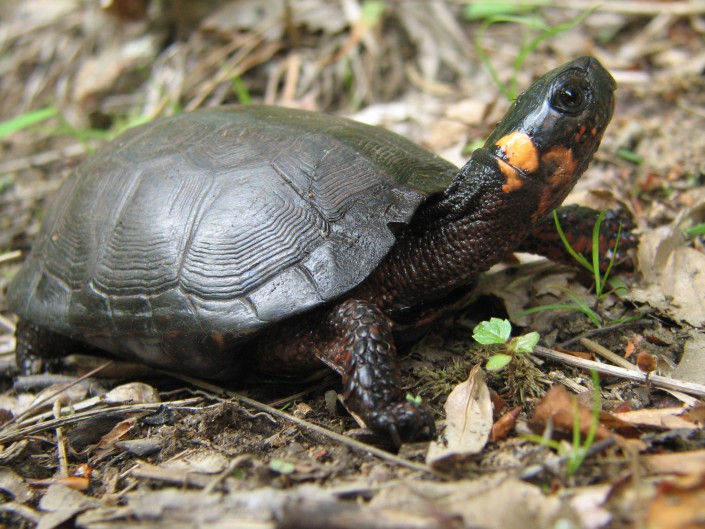Explore New Jersey’s Wetlands!
By: Kelly Triece, Wildlife Biologist

Wetlands are important because they are part of New Jersey’s water resources and are vital to the health of our waterways. Although historically underappreciated, wetlands provide many environmental benefits such as filtering pollutants, storing floodwaters and serving as carbon sinks. New Jersey is comprised of a multitude of wetland types, including freshwater swamps, bogs, fens as well as estuarine and tidal marshes.
Many threatened and endangered species in New Jersey depend directly on wetlands, including the small and elusive bog turtle (Glyptemys muhlenbergii)! Bog turtles spend their entire lives in mossy bogs, wet meadows or stream fed seeps. They fed mostly on invertebrates, seeds, berries and carrion. Bog turtles are important members of their ecosystem because they help recycle nutrients, keep insect populations in check, and serve as indicators of wetland function and water quality. This tiny turtle and other wetland species are often victims of habitat loss and fragmentation, so protection of our precious wetlands is important to the long term vitality of many wildlife populations!
Millions of citizens enjoy their local wetlands every year through recreational uses provided by photography, hiking, fishing, canoeing and more! Did you know New Jersey is home to over 900,000 acres of wetlands? Get out and explore today!
Learn more:
- Conserve Wildlife Foundation’s Online Field Guide: Bog Turtle
- Conserve Wildlife Foundation’s Bog Turtle Project
Kelly Triece is a Wildlife Biologist for Conserve Wildlife Foundation of New Jersey.
Discover more from Conserve Wildlife Foundation of NJ
Subscribe to get the latest posts sent to your email.